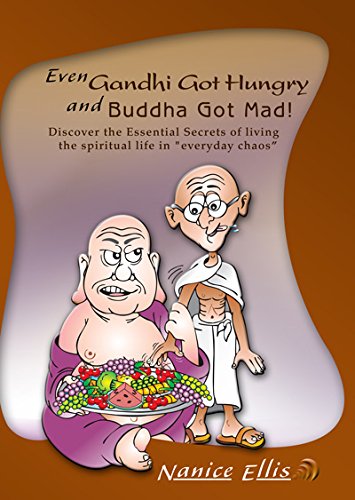By Nanice Ellis
Contributing writer for Wake Up World
Do you have a relationship that you would like to heal?
I want to share my secret for healing any relationship. I offer this advice as a seasoned relationship coach and someone who has personally healed her own relationships. The best part about this 3-step process is that you do it on your own. You do not need the other person to actively participate. It is all you.
In order to heal any relationship it is first important to understand the dynamics behind relationship issues. Relationship issues don’t occur because two people are different or they do not agree. People do not need to agree, or be similar, in order to get along great. Issues occur because one or both people are practicing judgment. It is judgment that causes all the issues in relationships. Without judgment, relationships thrive and when you release judgment, relationships heal.
Why is judgment so detrimental to relationships? When we feel judged, it invokes a feeling of rejection, so we either close down or we judge in return, in order to protect ourselves. Either reaction causes distance and discord.
[pro_ad_display_adzone id=”110028″]
When we are the ones who judge, we push the other person away, regardless of our justification for judgment. It does not matter if you feel you have a right to judge or that you really do know better, judgment is the best way to alienate a friend, lover, partner, parent, co-worker or child.
Even if we call our judgment by the name of love and caring, it is still judgment and it will always do the opposite of what we intended. If you want to lose someone, judge them.
You cannot love someone and judge them at the same time.
Releasing your judgment for another will help to heal the relationship, but it is not the whole story. There is a little trick to this healing process. If you follow this 3 step process below, you have the power to heal any relationship.
Step 1. Heal Self-Judgment
The entire world is a reflection of your conscious and subconscious beliefs. Therefore, if someone is judging you, his or her judgment must be a reflection of your own self-judgment. You cannot expect another to stop judging you, when you are judging yourself. The key is to identify how the other is judging you and then look inside yourself to see how you are judging yourself in a similar way. It might not be the exact same judgment but try to focus-in on the connection. Once you clearly make this identification, it is time to consciously release your self-judgment.
You do not need to share this with anyone. This process is something that you do privately. You will know when you are successful in releasing self-judgment because the other person will also reflect this by being more accepting of you. If he or she continues to judge you, go back inside and clear out any remains of self-judgment.
Step 2. Heal Your Judgment About the Other Person
How are you judging your friend, spouse, parent or child? Remember, do not confuse caring with judgment. Caring is not judgment. No matter what is going on in his or her life, you have no right to judge. You might want to make a list of all the ways in which you are judging this person and one by one, give up your judgments. Maybe even look to see how you are judging yourself in the same way and release those judgments, as well.
The fact is, no matter how wise you might be or how well you know this person, you do not know what is best for him or her.
If you care about someone and you want to help, the best you can do is to support her, in listening to her own heart, and by encouraging her to ask herself the right questions, so that she can make empowered choices. If you are insightful, you might even offer a question that will allow her to find her own clarity.
Don’t give advice unless asked and even then be careful that it does not contain any elements of judgment. If you judge, you alienate and if you alienate, you blow your chance for making a difference.
If you really want to be a positive influence, be a great example. Stay in integrity with your own beliefs and model this behavior but do not try to preach or meddle – because another will experience this as judgment and your message will fail to have the impact that you desire.
This article is about healing adult relationships, but even small children react negatively to judgment and positively to encouragement. You can be a more empowered parent without judgment, and you can effectively guide a child of any age without the punitive force of judgment.
Step 3. See the Other Person as Perfect and Whole
Make a list of all the things that you love about him or her. Focus only on these things every day. Do not give your attention to the things that you do not like or the problems at hand. Only focus on what you love about this person – without the issues. I knew that this can be challenging, especially when there are problems between the two of you, but if you can consistently focus on the positive and ignore the negative, before long things will begin to change – it is all up to you.
The other person will change because how you see this person changes. The amazing part is that you never have to say a thing to him or her. You only have to silently focus on the positive. You will be very aware of the changes in this person and in the relationship but he or she may be oblivious to any difference. By mentally and emotionally aligning with the positive aspects of your friend, partner, parent or child, you literally invoke a higher version of the person and a higher version of the relationship.
If you can drop your judgments, rationalizations and justifications, and you can take complete responsibility for the relationship and your experience of the other person, you have the power to not only heal the relationship but to create the best possible relationship that you can imagine.
There was once a woman in a class that I taught – she asked what she should do about her daughter who was so judgmental. My answer was, “Stop judging your daughter.” She said, “No, you don’t understand. It is my daughter who is judgmental – what should I do?” Again, I said, “Stop judging your daughter.” At this point the whole class got it – everyone except this woman. Finally, on the third round, her face went blank and she got it. If you want to change someone, you must be the change you want to see in them.
Judgment can be tricky because often we don’t even know when we are doing it, but we always feel when someone is doing it to us. If someone is reacting negatively to you, stop and look at yourself; where might you be in judgment? Even if you are not verbalizing it, your energy always projects your thoughts and feelings.
[pro_ad_display_adzone id=”110030″]
Healing Requires Time and Patience
Keep in mind that there is often a time gap between your inner release of judgment (and your mental shift) and the outside world catching up as an accurate reflection. So patience in the process is a good idea.
This means that the other may still be critical of you and show discord – allow him or her their experience and maintain your course. How long you ask? For as long as it takes. Giving it a deadline only makes it take longer and you may not reach your goal. But, if you can stay true to course in both loving yourself and the other, sooner or later a huge transformation will unfold.
At first you may notice less tension between the two of you or an openness that was not there before. Do not jump at the first signs of success. Just keep loving and be appropriately responsive in a positive and encouraging way. Sometimes there are bumps in the road, so don’t react if things are improving and then an issue arises – just stay aligned with this three step process and any issues will begin to smooth out again.
If you stay the course, success is imminent. However, if you go back to your old ways of judging, the relationship will digress as well, and you will be back to where you started. If this should occur, begin again.
This 3 step healing process does not exclude setting boundaries. If someone is judging you, you can say, in a kind and respectful manner, “I’m sorry, you probably did not know this, but no one is allowed to judge me.” When he does judge, you can say, “I’m sorry, I cannot hear you when you are judging me.” This sets a boundary for you and gives the other person important feedback on how to treat you. Make sure that your actions are in integrity with your requests.
This relationship healing process requires great spiritual maturity. In order for it to work you must rid yourself of pride, arrogance and self-righteousness. You must cast blame to the wind and you must take complete responsibility for every relationship. Others do not need to wake up, be responsible, apologize or do anything different. Only you need to shift. You must be the change you want to see in the ones you love.
Any two people in the world can have a great relationship if they surrender judgment and they embrace each other from a space of pure appreciation.
Relationship Affirmation: I love you more than “who I think you should be,” so I am just going to let you be you, and I am going to love you without needing or wanting you to change in anyway.
Copyright: Nanice Ellis 2019. All rights reserved
Free Teleclass Series with Nanice
 Are you on a spiritual path of awakening and developing your life? You are invited to attend Nanice’s FREE Teleclass Series on Spiritual Awakening – designed to further your awakening and assist you in exponential growth in all areas of your life.
Are you on a spiritual path of awakening and developing your life? You are invited to attend Nanice’s FREE Teleclass Series on Spiritual Awakening – designed to further your awakening and assist you in exponential growth in all areas of your life.
Click HERE for more information and to begin your free teleclass!
Even Gandhi Got Hungry and Buddha Got Mad
From the editor…
 It’s easy to express your spirituality when life is going the way you want it to, but what happens in the middle of everyday chaos, when your days are not long enough, your car breaks down, and your significant other is driving you crazy?
It’s easy to express your spirituality when life is going the way you want it to, but what happens in the middle of everyday chaos, when your days are not long enough, your car breaks down, and your significant other is driving you crazy?
Nanice Ellis’ book “Even Gandhi Got Hungry and Buddha Got Mad!” is not about Gandhi… or Buddha — it is a book about you and your spiritual journey through the chaos of daily life. It is the challenge of the modern day seeker to find his or her spiritual center. This book will help you to discover the secrets to making every day the spiritual adventure it is meant to be, and what it really means to be a spiritual being having a very human experience…
“Even Gandhi Got Hungry and Buddha Got Mad” is available here on Amazon.com in paperback and kindle editions. You can check out Nanice’s other books here on Nanice.com
About the author:
Nanice Ellis has been a professional Life Coach for over 20 years, successfully coaching women and men from all over the world. She is also an author, Theta Healer and Master Neuro Linguistic Practitioner.
Helping people to make quantum jumps in their lives, Nanice’s very unique coaching style is often referred to as the “Nanice Effect”. By using powerful and proven manifestation techniques, Nanice coaches people to tap into the power of the Universe and live their dreams, bridging the gap from the imagination to the realization of that dream. She works with leaders, coaches, healers and anyone who wants to live life to the fullest. You can learn more about the coaching programs offered at: Coaching Programs with Nanice.
Nanice is the author of several books, including the inspirational “The Infinite Power of You!” and “Even Gandhi Got Hungry and Buddha Got Mad!”, and her latest book, “Is There a White Elephant in Your Way? The Guidebook for Awakening and Self Empowerment” She is also the host of radio show Chai with Nanice. Her books are available at Nanice.com/6/Books and right here on Amazon.
Connect with Nanice at Nanice.com.
Recommended articles by Nanice Ellis:
- How To Help Others Spiritually Awaken
- Overcoming Negative Thinking – The #1 Cause of Chronic Depression
- How to Heal Emotional Trauma
- Raising Awake Children in a Broken School System
- Escaping the Matrix of Depression – The Truth About Depression Shall Set You Free
- Tired of Being a Negativity Sponge? 12 Ways to Prevent Energy Infiltration and Reclaim Your Energy
- Is Ayahuasca Mother Nature’s ‘Red Pill’?
- The 5 Stages of Awakening – Signposts and Pitfalls on the Path of Consciousness
- Are You More Awake Than Your Family? 12 Ways to Heal Relationships When Your Family Is Still Asleep
- Why You Should Forgive Your Parents… and How To Do It!
[pro_ad_display_adzone id=”110027″]








